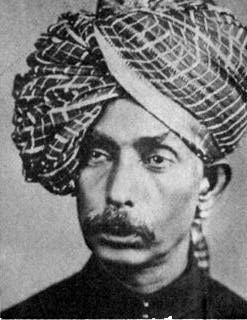We are lucky to have a huge collection of recordings that date back to the beginnings of the 20th century. By mid 1908, it is estimated that there was upwards of 10,000 different recordings of the various styles of Indian music in the market. A large portion of this collection remains unheard by, and inaccessible to, contemporary audiences. Until the advent of vinyl around the 1940s, most gramophone records were pressed from shellac compounds. This use was common until the 1950s, and continued into the 1970s in some non-Western countries. Shellac is a resin scraped from the bark of the trees where the female lac insects deposit it to provide a sticky hold on the trunk. The insects suck the sap of the tree and excrete lac almost constantly. It takes about 100,000 insects to make 500 grams of shellac flakes.

Abdul Karim Khan (1872-1937) is regarded as one of the most important Hindustani classical singers, recorded on 78rpms, during the early 20th century. Abdul Karim Khan was born into a family of musicians in the village of Kirana in Haryana state in north-central India. The Kirana Gharana of singing extends to his ancestors but it is most commonly associated with his style because of his prolific teaching, performing and recording in the first part of the 20th century. Abdul Karim Khan was appointed as a court musician by the Raja of Baroda state in Northwest India. But when Abdul Karim Khan fell in love with one of the prince's daughters, Tarabai Mane, who was his student at the time, the class difference between the royalty and musician-servants forced the two lovers to abscond in order to stay together. They landed further south, in Bombay, where Abdul Karim Khan taught, sang and, in 1905, recorded about thirty performances for the Gramophone Company. That same year, his daughter, the illustrious Hirabai Barodekar, was born.
Sarpada Khayal - Gopala Mori Karuna :
Jogiya - Piya Ke Milan Ki Aas :

Tyagaraja's Kriti - Rama Nee Samanamevaru :
Bhairavi Thumri - Jamuna Ke Teer Kanha :
Abdul Karim Khan felt that a musician should no longer simply inhabit a court as a paid servant, and became an innovator in charging admission fee for classical concerts. Meanwhile, during the period of increasing modernization and the anti-colonial struggle lead by Mahatma Gandhi, Abdul Karim Khan refused to record again until the mid-30s, when he accepted offers from the British-owned Gramophone Company's primary competitor, German-based Odeon. From 1934 until 1936, just a year before his death, he recorded several dozen pieces. He died between a tour in 1937, on a railway station, by simply turning to the man next to him and saying "I'm going now", then pulling down his turban and dying on the spot.
"Ustad Abdul Karim Khan's recording of the composition Jamuna Ke Teer Kanha in Raga Bhairavi stands as one of the great masterpieces of music. When I first heard the recordings of Abdul Karim Khan I thought that perhaps it would be best if I gave up singing, get a cabin up in the mountains, stack it with a record player and recordings of Abdul Karim Khan, and just listen for the rest of my life."
~ La Monte Young, American singer, composer and musician.



2 comments:
THE GREATEST TREASURE!!!!!
Dear Sir
Good Morning
It is a fantastic service to music from you. I feel finding the old things like these as the 8th wonder and also a huge treasure the value of which neither be counted nor measured. Wonderful job indeed which gives and reproduces the fruits of memory to the future generations also
Thanks for the article
Regards and Blessings to you
Uma Maheswar Nakka
Post a Comment